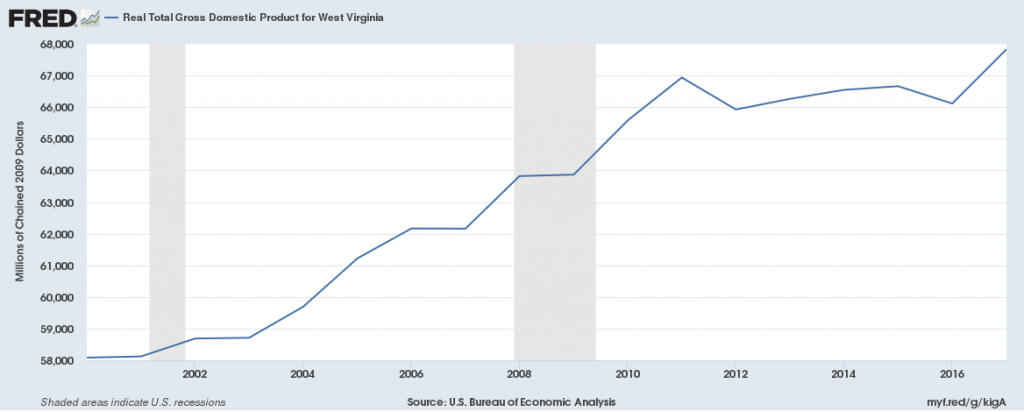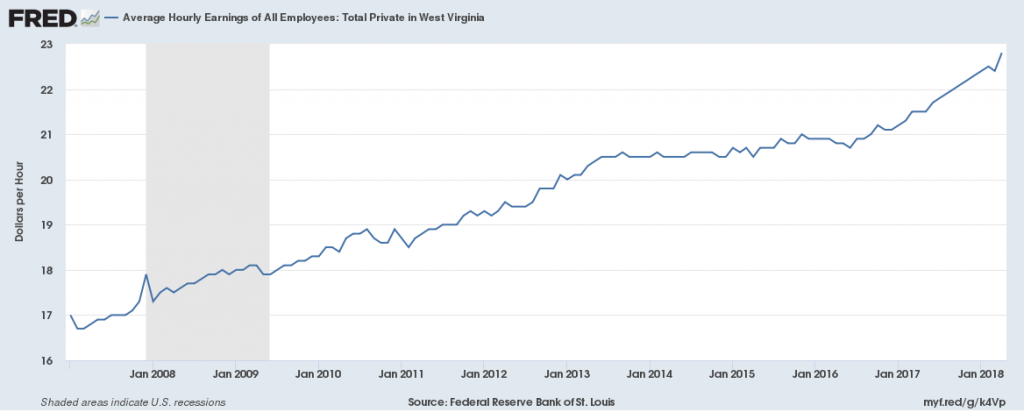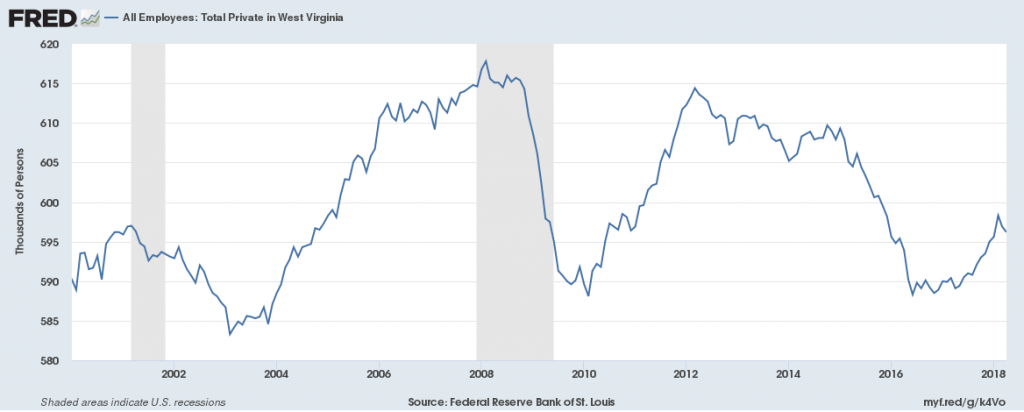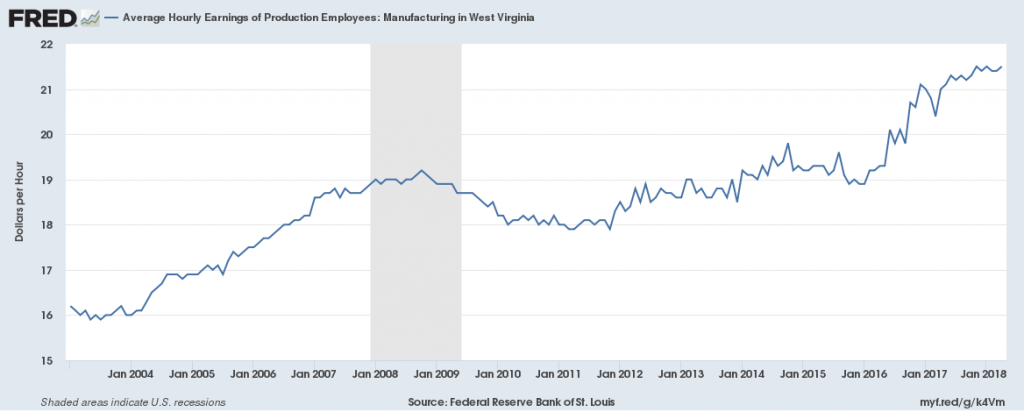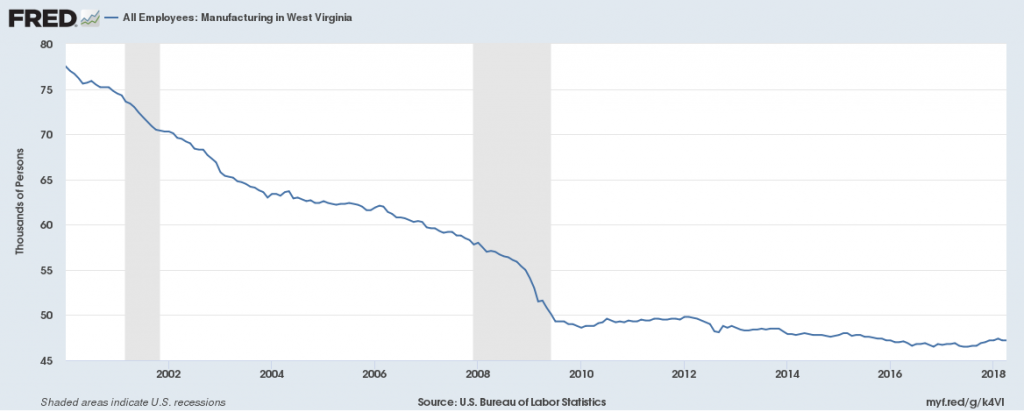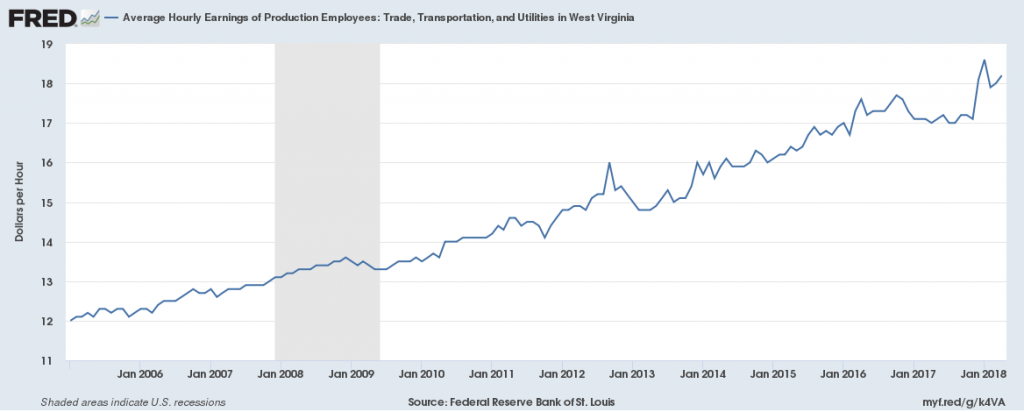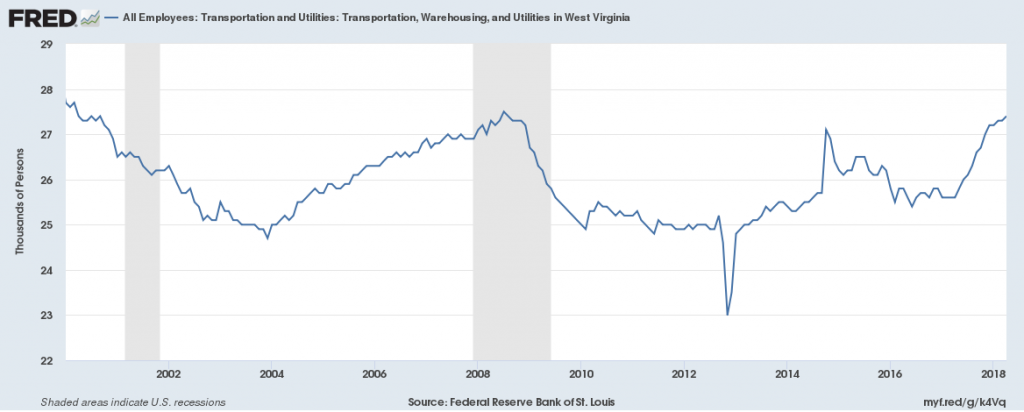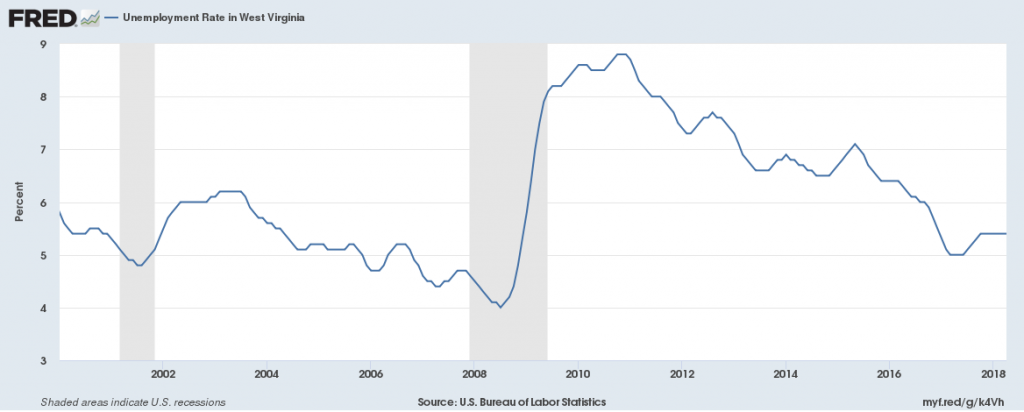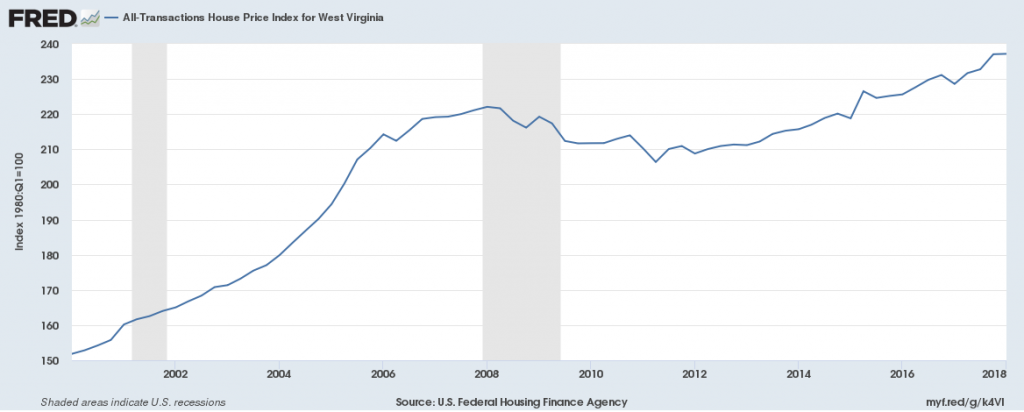Gross Domestic Product
Real GDP (a measure of economic growth) has been generally increasing since 2000, with growth slowing during the recession and from 2012-2014. It is growing again and is at a high of $68 billion in 2018.
Jobs
Private-sector employers have added 9,000 jobs since 2010, the national low point for private-sector employment. From 2017 to 2018 the private sector has added approximately 5,000 net new jobs, still below the pre-recession high of 615,000 total jobs. Average hourly wages in the private sector have been slowly increasing since 2008, going from $17.50/hr to $23/hr in 2018.
Manufacturing employment has been declining since 2000, especially during the 2008 recession, but steadied since then. There are currently 48,000 jobs in this sector in 2018, down from 78,000 in 2000. Average hourly wages of production employees has been rising since 2010, growing from $18/hr in 2010 to $21.50/hr in 2018.
There were 27,500 jobs in the Transportation, Warehousing and Utilities sector in 2018, the same as its 2008 peak after a period of recession. The average wage in the Transportation, Trade and Utilities sector was $13.50/hr in 2010 and $18/hr in 2018.
Unemployment
The unemployment rate in 2018 is 5.5%, slightly up from the year before. This is above the national average of 3.9% unemployment.
Housing
The House Price Index, a measure of the cost of housing, declined since its 2008 high of 220. It has been increasing since 2012, hitting 235 in 2018, showing growing housing costs, though the cost of housing is still below the national average.






